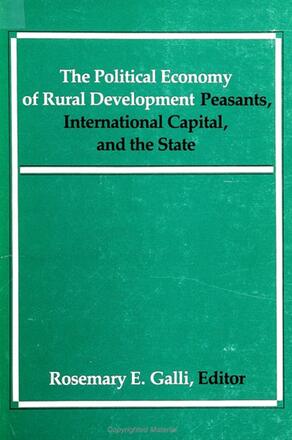
Political Economy of Rural Development
Alternative formats available from:
Description
This volume is concerned with integrated social and economic development in the Third World. It directs special attention to the psychological manipulation of peasants in order to keep them on the land and, where possible, make them more productive.
In Part One, Henry Bernstein outlines and illustrates concepts for the analysis of contemporary peasantries. His introduction provides a general, historical framework for understanding the relationship of contemporary peasantries to "modernization. " It is followed, in Parts Two and Three, by case studies of programs in Colombia (Rosemary E. Galli), Mexico (Hannes Lorenzen and Ernest Feder), Tanzania (Bruno Musti de Gennaro), and Bangladesh (Elizabeth Hartmann and James K. Boyce). In Part Four, Rosemary Galli offers a concluding essay on "Rural Development and the Contradiction of Capitalist Development. "
In this book, empirical evidence combines with personal experiences to cut through the rhetoric of those who consider "the underdeveloped nation" as an abstract unit. It reveals the variety of contemporary rural development strategies. From their synthesis emerges a picture of the internal political configuration of underdevelopment—the role of international capital and technology in rural areas and in assessment of the impact upon peasant farmers. This book persuasively argues that international agencies, supporting and supported by national governments and elites, promote development policies inimical to the welfare of rural cultivators.
Rosemary E. Galli is a member of the Department of Government and Politics at Bennington College, Bennington, Vermont.